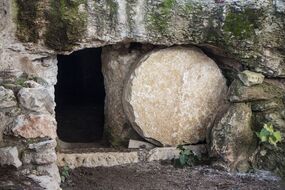Teaching Seminars
Defending & Confirming the Faith
"… you are all partners with me … in the defense and confirmation of the gospel" - Philippians 1.7

As they preached and then taught their converts to be faithful and influential in a culture which, like ours, was filled with many religions and philosophies, New Testament preachers emphasized the themes of defense and confirmation.
They engaged in apologia (a defense, reasoned statement, or argument) in their preaching to potential adherents and in instruction to believers to make a defense to anyone who asked about their hope (see Acts 22.3, 25; 25.8, 26; 26.1-2; 1 Pet 3.15). They also used the word bebaiōsis (to confirm, verify, prove to be true and certain) to underscore the reliability of the Christian message and the confidence the disciples could enjoy (Heb 2.2-3; 1 Cor 1.6; 2 Cor 1.21; Col 2.7). In his letter to the Philippians, Paul used both words, expressing his gratitude for a partnership with him in the gospel that included its “defense (apologia) and confirmation (bebaiōsis)” (Phil 1.7). Since being formally introduced to apologetics in an undergraduate course more than four decades ago, I have continued to study and present materials, in both academic and church settings, with the goal of helping believers be better prepared to be confident about and defend their faith. I have especially focused on the Bible's historical case for Jesus and response to questions prompted by the suffering and evil we experience. These popular-level seminars reflect my desire to continue fulfilling that aim. All can be adapted to local situations and schedules. For more information—or to inquire about scheduling—please contact me: [email protected] Click here for a downloadable version of this page's information. |

Core Lessons
|
Lessons from Job
|
|
|

For a Weekend Seminar, Retreat, VBS, or Other Extended Series
|
For a One-Day Emphasis
|
|
|

Copyright © 2015-2024 www.davidanguish.com. All Rights Reserved